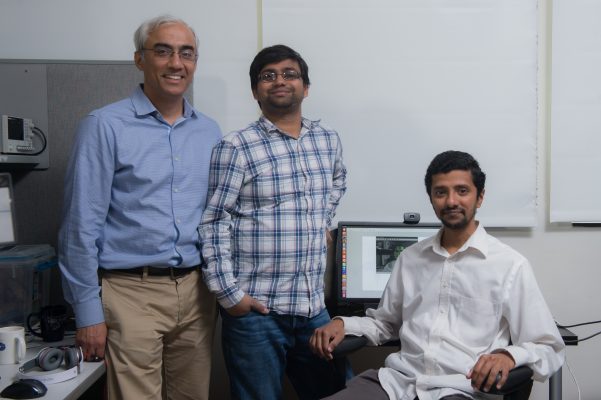The Indian American team of Rice graduate student Mayank Kumar and professors Ashok Veeraraghavan and Ashutosh Sabharwal created the touch free video imaging system that will let doctors diagnose patients from a distance with special attention paid to those in low-resource settings.
The System uses a video camera to monitor the vital signs of patients just by looking at their faces – Innovating system isn’t it.
The DistancePPG was the result of research from Rice University’s Scalable Health Initiative. It is designed to measure a patient’s pulse and breathing by analysing the changes in skin colour over time.
Kumar, the project’s lead graduate researcher, said DistancePPG will be particularly helpful to monitor premature infants for whom blood pressure cuffs or wired probes can pose a threat. ‘This story began in 2013 when we visited Texas Children’s Hospital to talk to doctors and get ideas,’ Kumar said.
‘Our key finding was that the strength of the skin-colour change signal is different in different regions of the face, so we developed a weighted-averaging algorithm,’ Kumar said. ‘It improved the accuracy of derived vital signs, rapidly expanding the scope, viability, reach and utility of camera-based vital-sign monitoring.’
